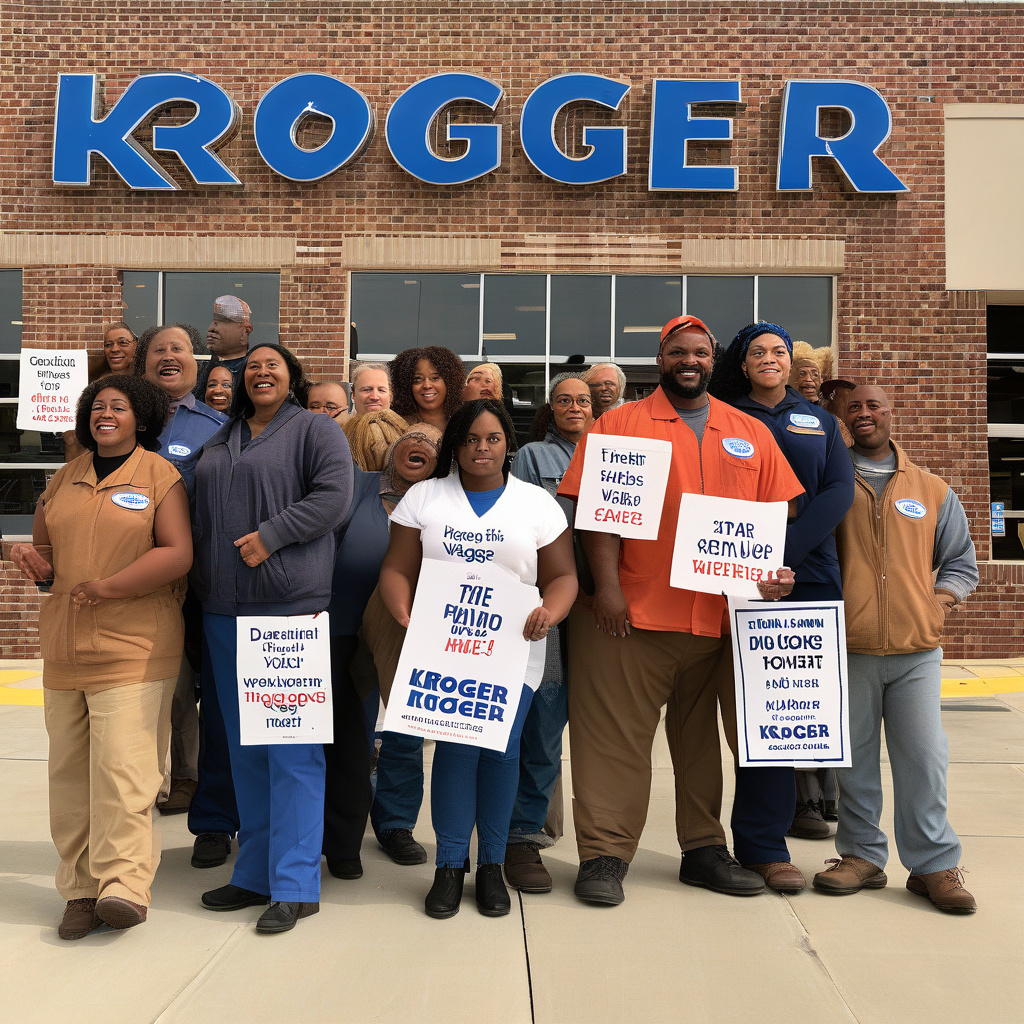Kroger Workers in Indiana Threaten to Strike
Kroger, one of the largest grocery chains in the United States, is facing a potential labor strike as workers in Indiana are threatening to walk off the job. The United Food and Commercial Workers (UFCW) Local 700, which represents Kroger employees in the region, will be meeting with the grocer’s representatives later this week to discuss contract negotiations. The outcome of these discussions could have significant implications not only for Kroger and its employees but also for the retail industry as a whole.
The threat of a strike by Kroger workers in Indiana underscores the ongoing challenges faced by retail employees, particularly in the current economic climate. The COVID-19 pandemic has highlighted the essential nature of grocery store workers, who have played a critical role in ensuring that communities have access to food and other essential supplies. Despite this, many retail workers continue to struggle with low wages, inadequate benefits, and difficult working conditions.
The potential strike at Kroger also raises important questions about the power dynamics between employers and employees in the retail sector. As large corporations like Kroger seek to maximize profits and minimize costs, workers are often left to bear the brunt of these efforts through stagnant wages and limited job security. In this context, labor unions like UFCW Local 700 play a crucial role in advocating for the rights and interests of retail workers, pushing for fair wages, benefits, and working conditions.
The outcome of the upcoming negotiations between Kroger and UFCW Local 700 will be closely watched by industry analysts, labor advocates, and consumers alike. A successful resolution that addresses the concerns of workers while also meeting the needs of the company could set a positive precedent for labor relations in the retail industry. On the other hand, a protracted strike or breakdown in negotiations could have negative consequences for both Kroger and its employees, potentially leading to disruptions in supply chains and customer service.
In recent years, we have seen a growing wave of labor activism and organizing efforts among retail workers across the country. From strikes and protests to union drives and advocacy campaigns, employees are increasingly speaking out against unfair labor practices and demanding better treatment from their employers. The potential strike at Kroger in Indiana is just the latest example of this trend, reflecting the broader push for worker empowerment and economic justice in the retail sector.
As the retail industry continues to evolve and adapt to changing market dynamics, the treatment of workers will be a key area of focus for companies, policymakers, and consumers. The outcome of the negotiations between Kroger and UFCW Local 700 will be a test case for how companies respond to the demands of their employees and the pressures of a shifting retail landscape. In the end, the resolution of this labor dispute could have far-reaching implications for the future of work in the retail industry.
The threat of a strike by Kroger workers in Indiana serves as a reminder of the importance of fair labor practices and respectful treatment of employees in the retail sector. As the negotiations unfold in the coming days, all eyes will be on Kroger and UFCW Local 700 to see how they navigate this critical juncture in labor relations. The outcome of these discussions could have ripple effects that extend far beyond Indiana, shaping the future of work in the retail industry for years to come.
Kroger, Indiana, Strike, UFCW Local 700, Retail Industry
